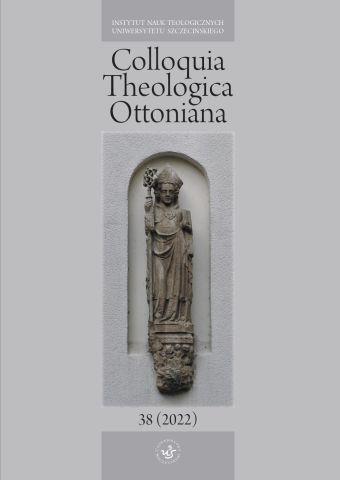Bezkompromisowa postawa biskupów Teodora Benscha i Wilhelma Pluty. Na drodze do stabilizacji organizacji kościelnej na Ziemiach Zachodnich
THE UNCOMPROMISING NATURE OF BISHOPS THEODOR BENSCH AND WILHELM PLUTA: ON THE WAY TO THE STABILIZATION OF THE CHURCH ORGANIZATION IN THE WESTERN TERRITORIES
Author(s): Grzegorz WejmanSubject(s): Christian Theology and Religion, History, History of Church(es), Local History / Microhistory, Recent History (1900 till today), Theology and Religion, Post-War period (1950 - 1989)
Published by: Wydawnictwo Naukowe Uniwersytetu Szczecińskiego
Keywords: Bishop Teodor Bensch; Bishop Wilhelm Pluta; Gorzów Church; uncompromising nature; communist authorities in Poland
Summary/Abstract: In 1956, the Gorzów Church had the first bishop in its history as a ruler. Unfortunately, the zealous pastoral ministry of Bishop Theodor Bensch was interrupted by his sudden death. Nevertheless, his work was beautifully continued and further developed by Bishop Wilhelm Pluta – today a Servant of God. The first bishops of the Gorzów Ordinariate wrote down a beautiful charter of pastoral ministry in the Gorzów Ordinariate – years 1956–1972. The first of them, Bishop Bensch, had a high ecclesiastical position because he was a long-time secretary of Primate Stefan Wyszyński. He also knew the backroom of the politics of the authorities and the methods of their conduct. These experiences, and above all great intellectual, pastoral, and organizational skills caused him to activate the church life of the Ordinariate. The authorities considered him to be a taciturn and faithful executor of “the orders of the Vatican and the church hierarchy.” Also, Bishop Pluta was always guided by the good of the Church and remained in close relations with the Primate of Poland, Cardinal Stefan Wyszyński. All of his pastoral ministry could be summed up in one sentence: “The shepherd’s great care for man.” The uncompromising nature of Bishop Pluta meant that in the 1960s the authorities considered him on par with the Przemyśl bishop, Ignacy Tokarczuk who was an “enemy of the communist authorities in Poland.” The attitudes of zealous shepherds were an invaluable contribution to the process of stabilizing the church organization in the Western Territories. Despite the double yoke, they did not have the certainty of the canonical stability that other bishops had under their feet. They were fought by the state authorities, but they survived and lived to see the long-awaited decision of Pope Paul VI in the papal bull Episcoporum Poloniae coetus of June 28, 1972, and the division of the great Gorzów Apostolic Administration into three dioceses: Gorzów Diocese, Koszalin-Kołobrzeg Diocese, and Szczecin-Kamień Diocese.
Journal: Colloquia Theologica Ottoniana
- Issue Year: 2022
- Issue No: 38
- Page Range: 179-208
- Page Count: 30
- Language: Polish

